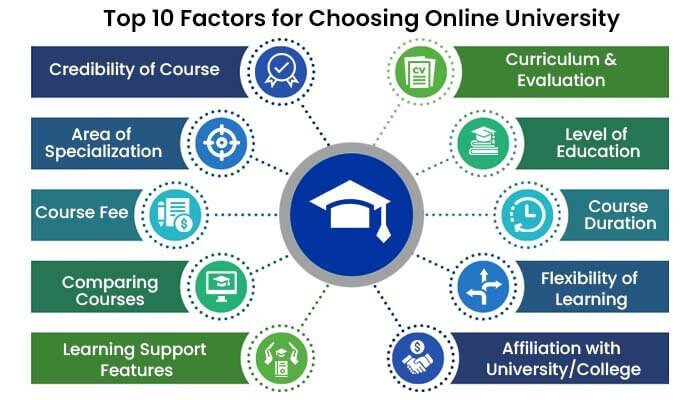Online education has grown significantly in recent years, giving students a convenient and adaptable option to learn new things and acquire useful skills. Numerous platforms and courses have evolved as a result of their soaring popularity, transforming the learning environment by providing students with an unparalleled level of flexibility, convenience, and subject choice. But with so many online courses accessible, it might be difficult to choose the one that best suits our individual learning objectives.
1. RATING, CREDIBILITY, AND ACCREDITATION
When enrolling in an academic or professional course, the platform’s reliability must be taken into account, thus you must search for programs from the most reputable and thorough online institutions and education platforms.
The best way to complete the course is to review the platform’s rankings, affiliations, and accreditations. If a course is accredited, it means that it adheres to the highest standards and that you will obtain a high-quality education. Students should also look for reviews and endorsements from past classes to get insightful information about how well the platform and the course worked.
2. CONTENT AND STRUCTURE OF THE COURSE
It is essential to undertake a thorough review of the course material and accessible resources while evaluating online courses. You can assess the course’s learning objectives and see if it matches your personal and professional competencies with this evaluation.
Clear definitions of the course’s learning objectives, modules, lectures, or units promote transparency and serve as a guide for your academic path. As these characteristics considerably improve the entire learning experience, it is also critical to confirm whether the course includes interactive components like assignments, doubt-clearing discussions, quizzes, and other engaging activities.
3. EXPERTISE AND SUPPORT OF INSTRUCTORS
Experienced teachers can present information simply by breaking down complex subjects using their vast knowledge. It’s also critical to think about if the teacher or teaching assistant provides chances for one-on-one conversations, constructive criticism, and devoted doubt-clearing sessions.
These interactive methods depart from the boring standard classroom lectures, giving students a more interesting and productive learning experience.

4. ACCESSIBILITY AND FLEXIBILITY
It is crucial to thoroughly consider an online course’s flexibility and accessibility before considering enrolling in it. It is important to consider whether the course is instructor-led, self-paced, or adheres to set deadlines and schedules because not all courses offer the same level of customization.
It’s also crucial to think about how simple it will be for you to access, analyze, and participate in the course materials, conversations, and activities. You can choose a course that fits your preferences and allows for a relaxing and satisfying learning experience by taking these elements into consideration.
5. COST AND VALUE FOR MONEY
The cost of the course is a significant factor to consider when comparing online courses. While accessibility is undoubtedly enticing, it’s vital to remember that high-quality education frequently has a cost. Because the price of online courses can vary greatly, it is advisable to evaluate the course’s worth and contrast it with other options available on the market.
Take into account the potential employment options and potential improvement in income when choosing professional courses. Calculating the anticipated time it will take for job development or income growth to cover the expense of the training is also valuable.
